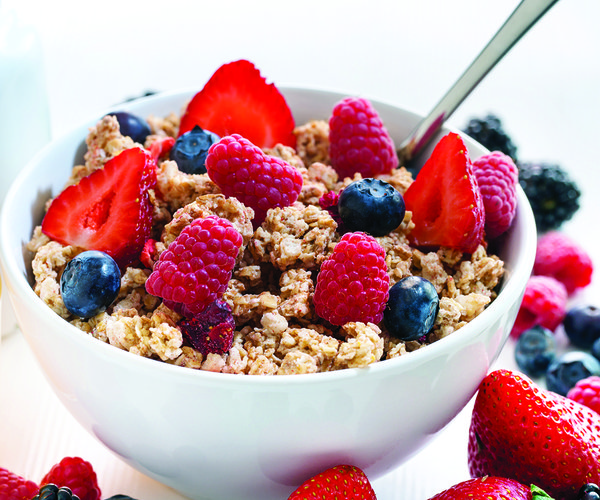The connection between energy and eating is significant. A healthy diet and approach to eating can vastly improve energy levels, while a poorly planned diet that lacks nutrition can contribute to feelings of fatigue and increase a person’s risk for various ailments.
The Harvard Medical School notes that different kinds of foods are converted to energy at different rates. That’s why some foods, such as candy, provide quick boosts of energy while foods such as whole grains tend to supply the body with energy reserves that it can draw on throughout the day.
It’s not just what people eat but how they eat that can affect their energy levels. In addition to choosing the right foods, men and women can try the following strategies as they look to eat to boost their energy levels.
Eat smaller, more frequent meals. Avoiding the traditional three-meals-per-day approach may help improve energy levels, especially for people who tend to eat sizable meals once, twice or even three times every day. According to the Cleveland Clinic, the metabolisms of people who do not eat regularly will slow down, as the body absorbs and stores more of the food it eats. Those stores include cholesterol and fat, which can be unhealthy and contribute to weight gain. However, by eating small meals more frequently, one’s metabolism speeds up and more calories are burned. The body recognizes more food is soon on the way and, as a result, it does not need to store as much cholesterol and fat as it would if meals were eaten less frequently.
Avoid a big lunch. The Harvard Medical School notes that, while the reasons are unclear, research has indicated that the circadian rhythms of people who eat big lunches indicate a more significant drop in afternoon energy levels than the rhythms of people who eat smaller midday meals.
The foods people eat are not the only components of their diet that can affect their energy levels. Caffeinated beverages can provide a temporary boost of energy as well. However, men and women who drink coffee or other caffeinated beverages to boost their energy levels should avoid doing so in large amounts after 2 p.m. That’s because caffeine can cause insomnia, and insufficient sleep can dramatically affect energy levels.
Eating smaller, more frequent meals may compel some people to snack. The Academy of Nutrition and Dietetics notes that snacks are important as long as they’re the right snacks. Avoid snacks that are just empty calories in favor of foods that contain protein and fiber-rich carbohydrates. Such snacks, which may include fruits such as apples and fresh berries or protein sources like nuts and Greek yogurt, can provide lasting energy. It’s also important that men and women not snack to fill themselves up, but rather to quell any hunger pangs and get an energy boost between meals.
The foods people eat and when they eat them can have a dramatic impact on their energy levels.





